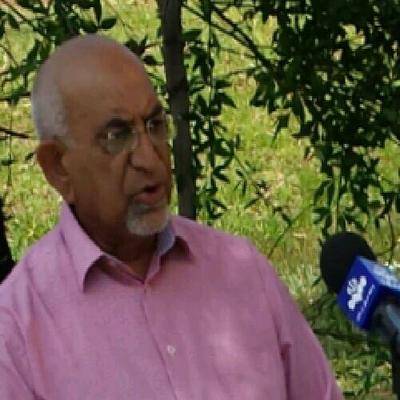As the world reacts with mounting alarm to Benjamin Netanyahu’s declared goal to level Rafah to the ground, the spotlight now falls on Egypt. Will the North African powerhouse stand idly by allowing Israel to intensify its ongoing genocide in Gaza; make good its threat to annul the “peace treaty” with the occupation state; or step in to protect the Palestinians?
The authorities in Cairo will know that plans by Israel to populate Gaza with Jewish settlements, requires Egypt’s collaboration to absorb Palestinian refugees into parts of the Sinai Peninsula.
What it translates to is that Gaza will be ethnically-cleansed of 2.3 million Palestinians and replaced with fanatical Jewish settlers.
However, the sticking point is Rafah, where more than a million and half Palestinians who were forced violently to evacuate their homes in the north of Gaza, are huddled in tents and makeshift shelters, facing death from relentless air strikes, hunger and thirst. Moreover, the dire need for medical treatment has reduced Gaza to the worst humanitarian catastrophe the world has ever seen in the modern era.
So how will Egypt respond?
The Egypt of today under the repressive military rule of General Abdel Fateh Al-Sisi is a far cry from the revolutionary leadership of the late Dr Mohamed Morsi. During the exciting but short-lived era of the Arab Spring, tens of thousands of protesters across Cairo flooded Tahrir Square demanding the removal of Hosni Mubarak and the end of his thirty-year rule.
Following the popular revolution against his brutal dictatorship, Mubarak was forced to resign. An epic period indeed saw the country transit from tyranny to democracy when Morsi was elected to lead Egypt in the country’s first free and fair democratic election.
This dramatic change of fortune did not sit well with the Western powers, which began a series of dirty tricks to oust Morsi, notwithstanding the fact that he had won a comfortable electoral majority. A classic example of regime change came into play when a number of countries connived to unseat him through a bloody military coup.
READ: Former Mossad official: ‘Children in Gaza over 4 deserve to be starved’
The candidate to replace Morsi pushed by the US, Israel, the UAE and Saudi Arabia was the head of Egypt’s notorious secret service/intelligence unit, Al-Sisi, who was also in charge of the powerful Egyptian military. In an elaborate scheme, a rebellion against Morsi was orchestrated as a prelude to the coup. Reports subsequently revealed that the counter-revolution was funded by the UAE government. These regimes shared common misgivings about Morsi’s ties to the Muslim Brotherhood and were loath to have the Arab world’s most powerful nation-state in the hands of the movement. Chatham House reported that recordings leaked from the Egyptian Ministry of Defence and confidential testimony from US officials fingered the UAE as having provided funds to support the activity of Tamarod, the movement that organised the rebellion against Morsi.
As soon as Al-Sisi ousted Morsi, Saudi Arabia and the UAE made no effort to conceal their approval. Both Western-backed oligarchs displayed their support gleefully with transfers of huge amounts of money to Egypt. The UAE was open and brazen about its support. UAE Crown Prince Mohamed Bin Zayed led a delegation to Cairo in solidarity with coup leader Al-Sisi less than a fortnight after the horror of the Rabaa Al-Adawiya Massacre, during which 1,000 Egyptian citizens were murdered by the security services. The background to the massacre is well documented; Al Jazeera reported that tens of thousands of Egyptians were out in the streets and city squares to demand the reinstatement of Morsi. On 14 August, 2013, as the protests entered their sixth consecutive week, thousands staged a sit-in at Rabaa Al-Adawiya Square, one of Cairo’s busiest thoroughfares, as they had been doing for more than a month.
Sisi’s forces moved in using armoured vehicles and bulldozers, in addition to ground troops and snipers on rooftops with live ammunition. They opened fire from all sides and closed off all safe exits from the square, according to witnesses and human rights organisations, reported Al Jazeera.
Elected president Morsi was jailed and subsequently died behind bars. The coup master Al-Sisi, meanwhile, has now been in power for just over a decade. No one has ever been held accountable for the Rabaa slaughter. On the contrary, Al-Sisi has been consistent in demonstrating the he cares nothing for human rights; his record is abysmal, with tens of thousands of political prisoners and show trials. This bodes ill for any hope that he might seek to deter Netanyahu’s genocidal attack on the city of Rafah.
OPINION: The bloodshed in Gaza excludes Israel from the civilised world
The Egyptian despot’s downward spiral will be complete as he sits back and continues to watch the slaughter of thousands of innocent Palestinians as the genocide intensifies in Gaza. The Egyptian army, air force and navy will not be given their chance to flex their muscles. Like their Israeli counterparts, in massacres from Rabaa to Rafah they are only good for killing defenceless civilians.
The views expressed in this article belong to the author and do not necessarily reflect the editorial policy of Middle East Monitor.

![Egypt's President Abdel Fattah al-Sisi at the Ittihadiye Palace in Cairo, Egypt on February 14, 2024 [Utku Ucrak/Anadolu via Getty Images]](https://i0.wp.com/www.middleeastmonitor.com/wp-content/uploads/2024/02/GettyImages-2002964383-scaled-e1708252877796.jpg?fit=920%2C613&ssl=1)







